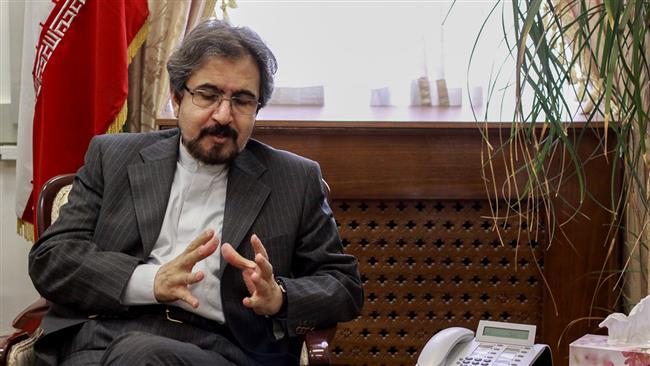

Iran’s Foreign Ministry has strongly rejected recent remarks by a British Foreign Office official against the Islamic Republic’s human rights record, calling the comments “provocative.”
Iranian Foreign Ministry Spokesman Bahram Qassemi on Wednesday reacted to recent remarks delivered at the House of Lords by Joyce Anelay, the British minister of state of the Foreign and Commonwealth Office.
Anelay had voiced “concerns” about the family of the British-Iranian Nazanin Zaqari, who has been convicted of inciting post-election unrest in Iran in 2009. Zaqari was arrested at the Imam Khomeini International Airport in Tehran last year.
The arrestee, a project manager at the Thomson Reuters Foundation, was then transferred to Kerman, found guilty of endangering Iran’s national security, and sentenced to five years in prison. Iranian Judiciary officials said her sentence had been upheld on Sunday.
Qassemi, the Iranian Foreign Ministry spokesman, called Anelay’s remarks “incorrect, injudicious, provocative” and an instance of interference.
He warned against the instrumental, political, and propagandist application of the issue of human rights to exert pressure on independent countries.
The Iranian official said it was surprising and regrettable that Britain, with a bleak rights record, was preaching human rights to other countries.
As cases of British rights violations, the Iranian official cited the UK’s arms sales to the “infanticidal” Saudi regime during the ongoing war on Yemen, its killer drones flying over Syria and taking civilian lives, and London’s continued divisive foreign policy vis-à-vis the Persian Gulf countries. Racially-charged aggression, the violation of refugee rights, and controversial prison conditions in Britain were also indicators of the UK’s disregard for human rights, Qassemi said.
The Iranian Foreign Ministry official also said that the Iranian Judiciary was an independent government branch.







